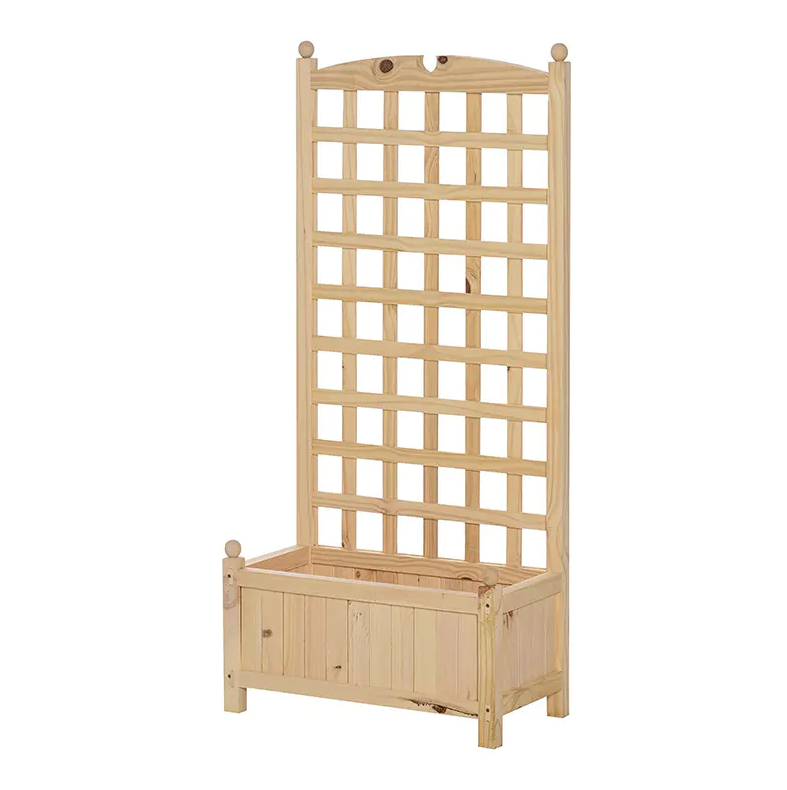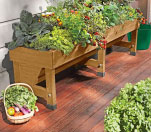Elevated wooden garden beds offer several benefits that can significantly improve the health and productivity of your plants.
Season extension: Elevated garden beds are well-suited for season extension techniques, enabling you to garden beyond the traditional growing season. You can cover the beds with protective materials like cold frames, row covers, or plastic tunnels to create a microclimate that retains heat and protects plants from frost. This allows you to start planting earlier in the spring and extend your harvest into the fall or even winter.
Weed control: Elevated garden beds provide a physical barrier between your plants and the surrounding soil, making it easier to control weeds. The raised structure helps prevent weed seeds from blowing in or being introduced through the soil, reducing the competition for nutrients and resources. You can also add a layer of mulch to further suppress weed growth.
Warmer soil temperature: Elevated garden beds tend to warm up faster in the spring compared to in-ground gardens. The increased soil temperature promotes quicker seed germination and encourages faster plant growth. This can be particularly advantageous if you live in a cooler climate or want to start planting early in the season.
Accessibility and ergonomics: Elevated garden beds are easier to access and work on, making gardening tasks more comfortable and efficient. The raised height eliminates the need for excessive bending, kneeling, or stooping, reducing strain on your back and joints. This accessibility is beneficial for gardeners of all ages and abilities, including those with mobility issues.
Reduced soil compaction: In traditional gardens, the soil can become compacted over time due to foot traffic and other activities, which can hinder root growth and nutrient absorption. With elevated garden beds, you can avoid this problem. Since you don't walk on the soil within the beds, the soil remains loose and friable, promoting healthy root growth and optimal nutrient uptake.
Mobility and flexibility: One of the advantages of elevated garden beds is their mobility. Depending on their design and construction, you can easily move these beds to different locations in your garden or even take them with you if you move houses. This flexibility allows you to adapt to changing sunlight conditions, optimize space usage, or experiment with different garden layouts.
Specialty gardens: Elevated garden beds are ideal for creating specialty gardens within your larger garden space. For example, you can dedicate a bed specifically for herbs, a bed for salad greens, or a bed for aromatic flowers. This separation not only organizes your garden but also facilitates maintenance and harvesting of specific plant groups.
Vertical gardening: Elevated garden beds provide a perfect platform for vertical gardening. You can attach trellises, cages, or other support structures to the sides or back of the bed, allowing vining plants to climb and grow vertically. This maximizes the use of space and increases your planting options. Vertical gardening is particularly useful for growing plants like tomatoes, cucumbers, beans, and peas, which benefit from vertical support.


Elevated wooden garden beds offer versatility, convenience, and the opportunity to create a customized garden space. Whether you have limited space, want to try unique designs, or need accessibility in your gardening, elevated beds provide a practical and aesthetically pleasing solution. They are adaptable to various gardening techniques and allow you to garden at new heights, making the most of your available space and enhancing your gardening experience.

 0
0
 English
English 中文简体
中文简体 Français
Français Español
Español
















